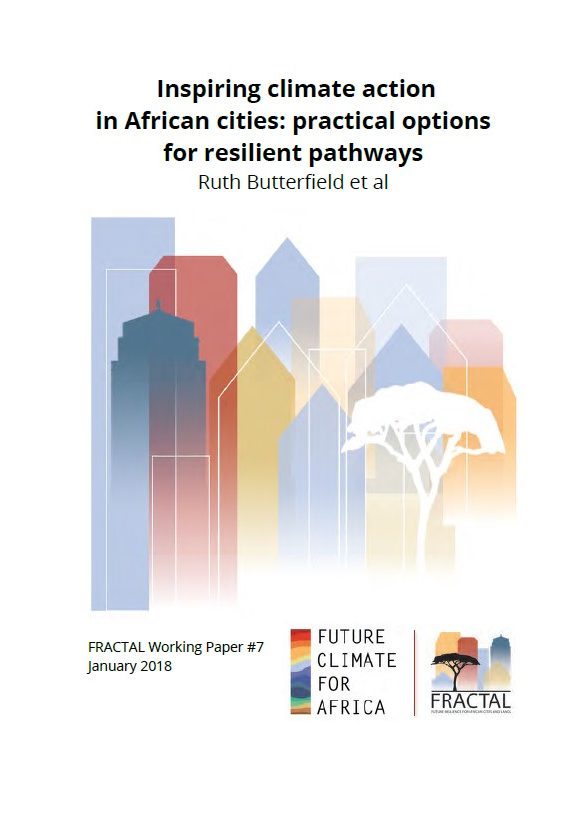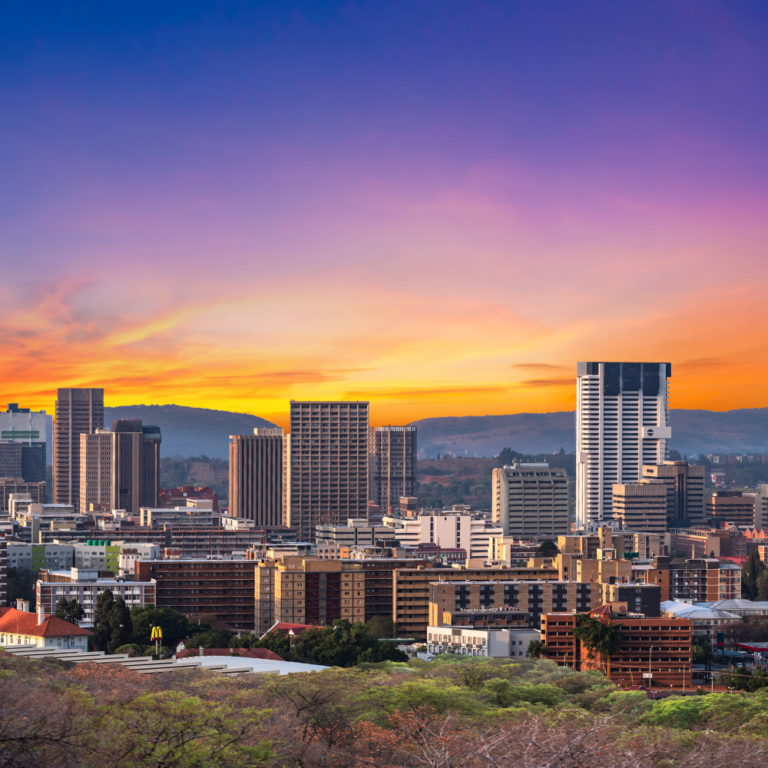chevron_left Back to Resources
Inspiring climate action in African cities
library_books
Publications & reports




Download:
Related ICLEI Pathway(s)
Low emission development
Resilient development
Equitable and people-centered development
About
Resource summary
Adapting to risks is essential to ensure sustainable development in Africa’s cities. Therefore, this working paper aims to enhance scientific understanding, foster policy debate, and spur action towards promising adaptation pathways. The ultimate goal is to enhance urban areas’ resilience, and to reduce the vulnerability of these regions to the challenges they face.
Africa’s cities and urban areas confront a multitude of interlinked and complex challenges as a result of climate change. The most pressing climate- and human-induced issues are:
- Climate change itself. People must contend with increased risk and uncertainty related to flooding, drought, extreme temperatures, sea level rise, and changes in seasonal rainfall patterns and intensity. These all have consequences for health, availability of food, water, shelter, livelihoods and security.
- The effects and consequences of climate change. On the African continent, the environmental repercussions are desertification, loss of biodiversity, deterioration and draining of wetlands, environmental degradation, and soil erosion. These forces increase the vulnerability of poor, rural communities – raising the likelihood that already high levels of rural-to-urban migration will continue to grow and increase pressure on cities.
- The rapid pace of urban population growth. At present, metropolitan growth is largely defined by the spread of so-called ‘informal’ settlements, substandard residential neighbourhoods. Piecemeal action on urban housing and infrastructure will not arrest the trend. Entire urban regions – not solely cities acting alone – must plan in truly multi-faceted ways. Cooperation and coordination must encompass both private and public sectors – and the many layers and levels of governments and agencies that pursue sometimes conflicting goals.
- The ongoing – and growing – challenges related to water delivery and wastewater removal. Access to clean drinking water, and effective removal of wastewater take on new urgency in the face of longer-lasting droughts and more-severe flooding. Management of these services is often fragmented. Infrastructure is inadequate, poorly maintained, and prone to malfunctioning.
- The lack of institutional capacity to adapt to new realities and to address new needs. As the climate changes and risk rises, government capacity faces new and pressing tests of its resolve and resources – human, financial and administrative – to anticipate, prepare for, and respond to changing ecological and economic situations. The situation cries out for well-functioning early warning systems, reliable climate data, and functioning legislative frameworks.
- The increased competition for scarce resources. Water, energy and food sectors compete for the same resources that also bear the brunt of the increased stress from climate change. For instance, securing, treating and distributing potable water are energy-intensive functions, and can be affected by energy shortages and prices. Thus, the competition for water, land and soil presents a growing challenge, and rising source of tension.
Related resources
slide 5 of 3
arrow_outward
library_books
Publications & reports
Mapping and investing in Africa’s food markets
library_books
Publications & reports
arrow_outward
library_books
Publications & reports
Investment Readiness Index Tool
library_books
Publications & reports

arrow_outward
library_books
Publications & reports
From Local Action to Global Impact:Elevating Subnational Governmentsin the G20 Climate Agenda
library_books
Publications & reports

